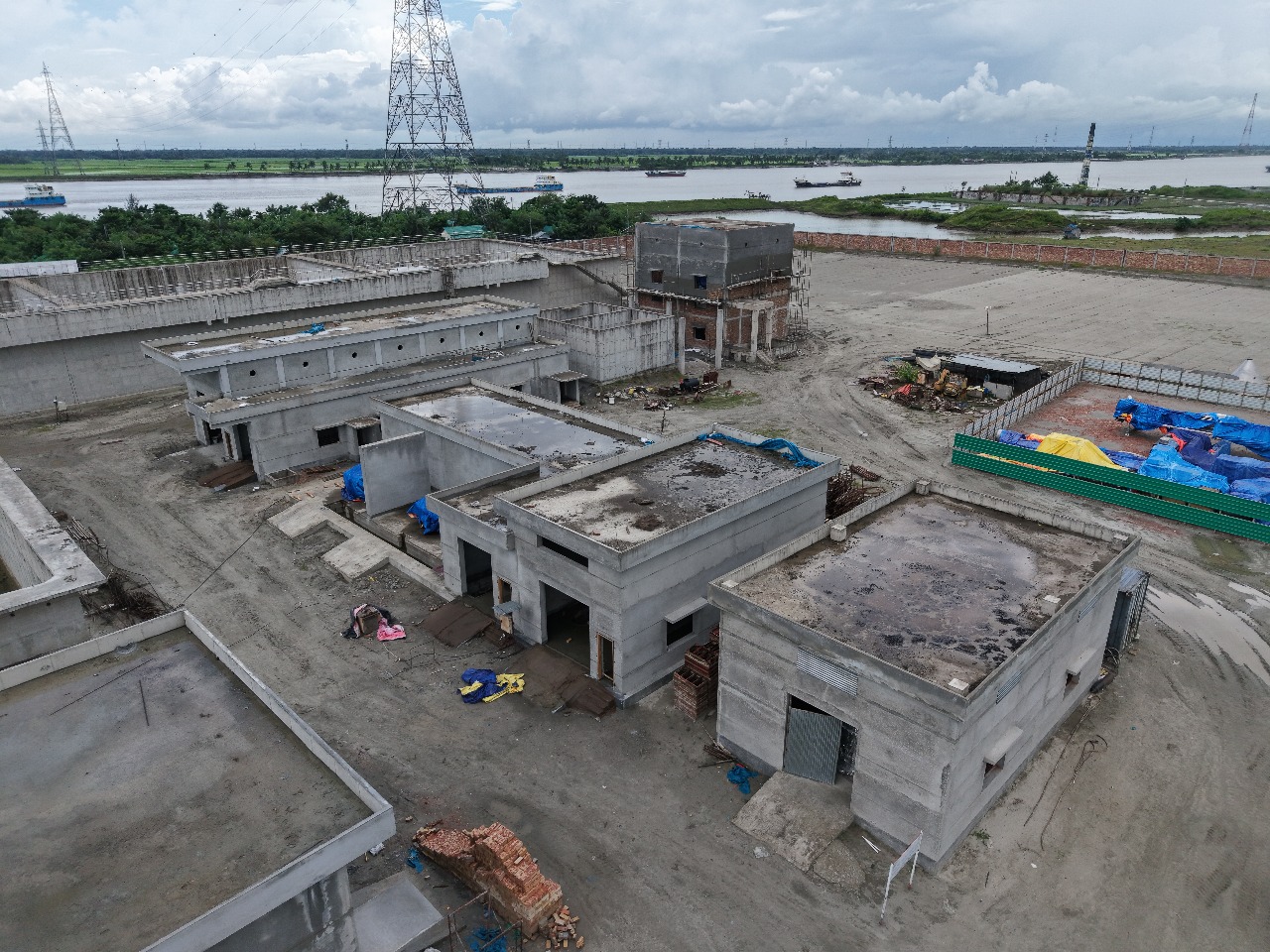News Flash
News Flash

KHULNA, Nov 11, 2025 (BSS) – At least 68 percent of the construction work for the two major sewerage treatment plants at Mathabhanga and Thikrabadh in Khulna, under the Khulna Sewerage System Development Project (KSSDP), has been completed.
The treatment plants are being implemented by the Khulna Water Supply and Sewerage Authority (KWASA) and will jointly treat up to 8 crore litres of household wastewater per day.
According to KWASA officials, sewage from houses in Khulna City Corporation (KCC) wards 16 to 31 will be collected through underground pipelines and transported directly to these plants. After treatment, part of the waste will be converted into organic fertilizer.
Work is currently underway across the city to install the necessary pipeline networks and manholes after a four-month closure.
At present, household sewage in Khulna is stored in individual septic tanks. Once filled, the waste is removed by KCC vehicles and transported to disposal sites.
However, a significant portion of sewage is still discharged directly into open drains, eventually contaminating local rivers and water bodies, causing both environmental pollution and health hazards.
Considering these challenges, the Khulna Sewerage System Development Project was approved by the Executive Committee of the National Economic Council (ECNEC).
The total budget for the project is Tk 2,334.14 crore, of which the Asian Development Bank (ADB) is providing Tk 1,404.72 crore in loans, while the remaining Tk 929.42 crore is being sourced from the Bangladesh government.
The project was previously targeted for completion by December 2025, but due to manifold problems, the completion target has been set for June 30, 2027.
According to project engineers, the construction of the two sewage treatment plants is underway, including one plant at Mathabhanga, located near the Khulna Riverview Park along the Rupsha River on 12 acres of land. The other is under construction on 22 acres at Thikrabadh.
Currently, at least 67 percent of the construction work at Mathabhanga and 69 percent at Thikrabadh has been completed.
The Mathabhanga plant will treat approximately 2.80 crore litres of wastewater daily. A portion of the treated waste will be processed into fertilizer, while the remaining treated sewage will undergo secondary treatment before being discharged into the Rupsha River.
Once the project is complete, open roadside drains will carry only rainwater. This is expected to significantly alleviate waterlogging during the monsoon season and minimize the environmental hazards of pollution.
Khan Selim Ahmed, Superintending Engineer of KWASA and Project Director, told BSS today, "The installation of underground sewer pipelines and construction of sewage treatment plants is a highly complex task. We are using the latest global technologies to build these facilities."
"Although construction work was disrupted due to various problems, including heavy rain, we are very hopeful that the construction of the treatment plants will be completed within the stipulated timeframe," he added.
In addition, both treatment plants are being built with integrated solar power systems. The two facilities are expected to generate 1.65 megawatts of electricity per day from solar energy, which will be used to partially power their operations, and it will be a net metering system.
Contacted, Abu Sayeed Md Monjurul Alam, Managing Director (Acting) of Khulna WASA and also the Additional Divisional Commissioner in Khulna, said this is the second largest integrated project of Bangladesh.
After facing some natural problems, the project work is progressing fast, and at least 68 percent of construction work has already been completed, he said, adding that Khulna city dwellers will get healthy sanitation facilities after the project is completed.
Talking to BSS, Sheikh Ashrafuzzaman, President of the Greater Khulna Development Action Coordination Committee (GKDACC), said that the project was the long-awaited demand of the people of Khulna.